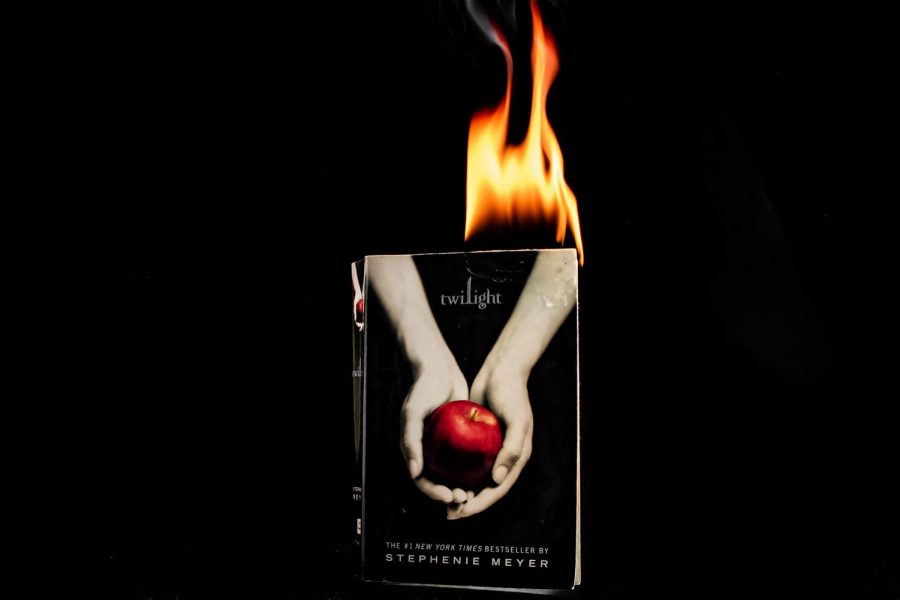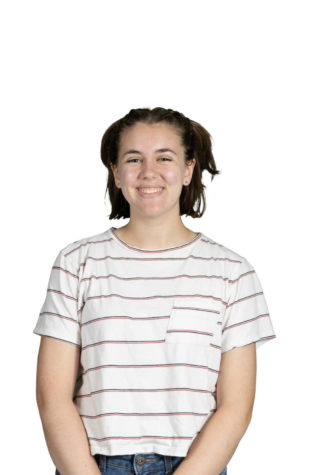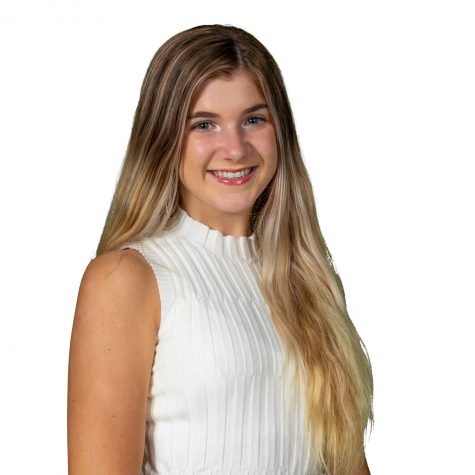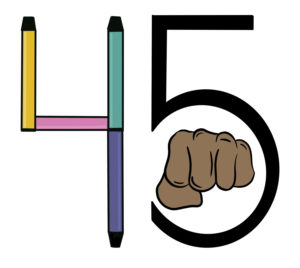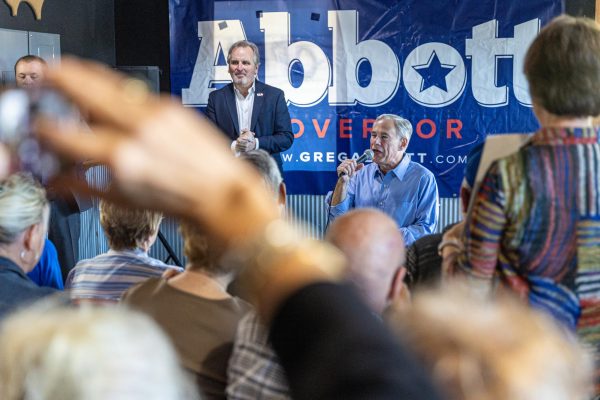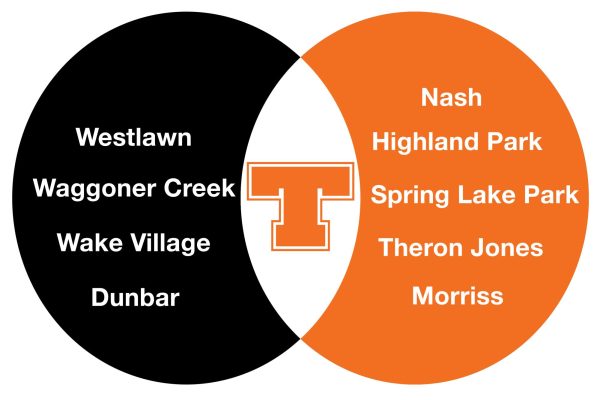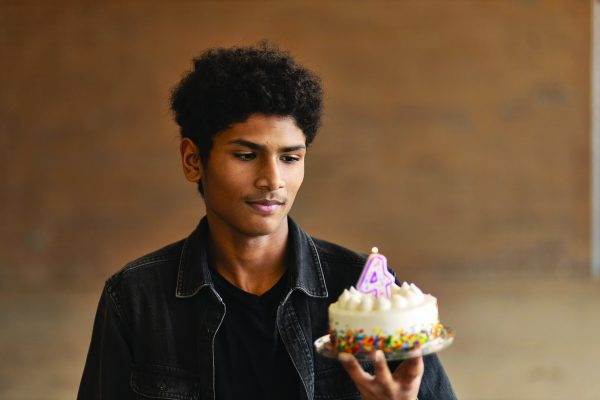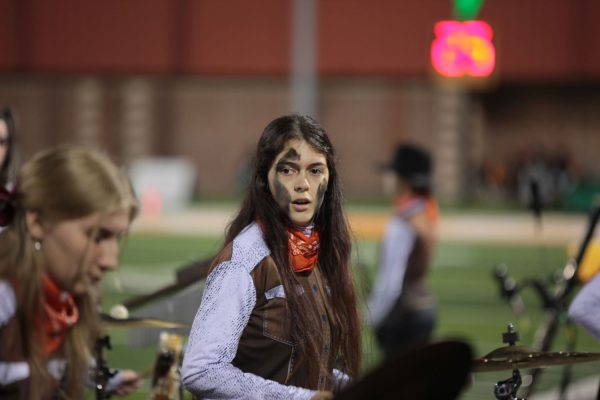Bella, Edward and abuse uncensored
How “Twilight” normalizes abuse
With the release of the fifth book of the Twilight series,
October 26, 2020
Over the past few months, the “Twilight” books and movies have been regaining traction in light of the announcement and release of the fifth book, “Midnight Sun.” Fans and haters alike have flocked to social media, professing their excitement or contempt, producing memes by the dozens and ridiculing the acting in the movies. But rarely are people bringing attention to the biggest issue. No, I’m not talking about Team Edward versus Team Jacob — I’m talking about the countless instances of abuse and harassment.
These books and movies were one of the biggest trends of 2000-10s. Having the harassment so present in media consumed mainly by teens had a huge impact on what’s accepted and “normal” in our society. Even if someone doesn’t actively participate in consumption of this media, everyone is shaped by the world that was subsequently molded by the art produced within it.
If unhealthy, abusive relationships are normalized, like they are in the “Twilight” series, it can lead to less recognition for people who have experienced such things by those around them. (Spoilers for the books ahead). In “Eclipse,” Bella is kissed by Jacob when she clearly told him no. When Jacob tells her father that she hit him because he kissed her, his reaction was, “‘Good for you, kid,’ Charlie congratulated him.” This has a startling direct correlation to what I discovered in my interviews.
“Most people that I was friends with either didn’t take [my abuse] seriously or didn’t believe me,” Avery Smith* said. “I even had certain people come up to me and tell me that I probably enjoyed it and that it was my fault. Even parental figures and family members told me, ‘Well I don’t see why you could let that happen.’”
When she was assaulted, support was rare, and she wasn’t the only one.
“I hated going home. I felt really isolated from everybody,” Junior Zoe Hawthorn said. “[My friend and I] talked to CPS, and nothing happened.”
It’s not only people close to the survivors who are ignoring their pain. People in positions of power are doing very little to help fix this epidemic of assault as well.
The books do, however, accurately display the typical reaction to an assault. For example, from “Eclipse,” “Acting on instinct, I let my hands drop to my side, and shut down. I opened my eyes and didn’t fight, didn’t feel … just waited for him to stop.” No one expects to be assaulted, and it’s hard to know in that moment what you are meant to do, especially if the attacker is bigger and stronger.
“It was just kind of a shock,” Smith said. “You just zone out a little bit and you’re like, ‘What’s happening?’”
Fight or flight didn’t kick in. Instead, Smith had the same reaction as Bella — freezing.
“I was kind of young at the time, so I didn’t really understand the gravity of it. I just knew I didn’t like it. It made me really uncomfortable,” Hawthorn said.
At Hawthorn’s age, fighting back wasn’t an option. Even if she had been old enough to attempt it, it is rare that the victim will be in the correct state of mind to remember anything they may have been taught on the subject.
“My parents [would say], ‘Okay if this happens this is what you need to do.’ It’s like, ‘Okay, this is what I’m gonna do,’” Junior Eli Cooper* said. “But I mean, when it happens it’s kind of like you don’t think it’s gonna happen to you. So, in that moment, it was kind of like, ‘I don’t know what I need to do.’”
A multitude of unhealthy relationships are also presented in the “Twilight” series with both Jacob and Edward, but one of the most extreme examples once again comes from “Eclipse.” When Jacob insists that Edward is manipulating Bella, she responds, “At least he didn’t threaten to kill himself to make me kiss him.” Jacob says, “I’d do it again.” Even after this clear manipulation, Bella still asserts, “It is my fault.”
Having the notion of “my fault” presented so heavily in a popular work of literature is dangerous for survivors of assault and unhealthy relationships to see when that is already a common thread running between most victims.
“I was still dating the person because, again, I felt like it was my fault that I didn’t like it.” Cooper* said. “After it happened to me I read up about it and almost everybody who goes through this feels like it’s their fault.”
Luckily, all of the survivors I interviewed were able to get out of their unhealthy relationships and away from their abusers. For all three, it was difficult to push past the thought bred by our society that it was their fault, and it was sometimes difficult to find support. Obviously, the “Twilight” series isn’t the only thing that normalizes abuse, nor is it an inherently bad thing to be a fan of it, but as someone who agrees that there is some entertainment value in the books, I think it is vital to also call out the glaring issues, lest we repeat them.
Instead of letting abuse be normalized further, we need to normalize believing and helping survivors in any way we can. And for those who have experienced or are currently experiencing an unhealthy relationship or abuse of any kind, whether mental or physical, know that there are people out there for you even if it doesn’t seem that way at first.
“I would say that after it happens, despite what people have said, you need to immediately go to somebody,” Cooper said “Give yourself time, really think about it, and really start telling yourself, ask yourself as many questions as you can about the situation to reinforce the fact that it wasn’t your fault.”
*All names were changed to protect their identities.


